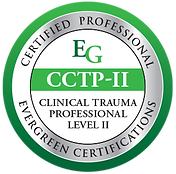
CALGARY COUNSELLING AND THERAPY SERVICES
Where Compassion Meets Clinical Mental Health Care
Trauma-informed psychology that helps you reclaim your energy, life, and purpose.




Bringing heart and proven strategies to your healing journey.
Compassionate Central provides professional, licensed, trauma-informed individual Calgary counselling and therapy services for adults, teenagers, and youth. This is a warm, welcoming space that’s profoundly human, intentionally paced, and deeply transformative. Sessions are safe enough to explore openly, deep enough to spark lasting change, and ensures you’re genuinely heard. We offer evidence-based treatment modalities such as Cognitive Behavioural Therapy (CBT), Dialectical Behaviour Therapy (DBT), and Internal Family Systems (IFS), while building you a personalized care plan.




Trusted & Verified by:

Areas of Expertise

Every day feels like you’re carrying an invisible weight that no one else can see. Our Calgary depression counselling helps you lift that weight, restore your energy, and believe in a brighter tomorrow.

Your mind keeps racing, even when you’re exhausted, making it impossible to feel calm. With anxiety therapy, you can quiet the noise, breathe easier, and move through life with confidence.

ADHD
Therapy
You’re trying so hard, but nothing stays organized. ADHD therapy helps you understand your mind, develop supportive habits, and shape a life that feels more manageable, meaningful, and aligned with your strengths.

Stress
Management
Stress can hit like crashing waves, leaving you drained, irritable, and running on empty. We’ll help you master healthy coping tools so you feel grounded, and ready for whatever comes next.

Anger Management
Your anger rises fast, catching you off guard and leaving you with regret. Anger management counselling helps you build emotional regulation, coping skills, and impulse control, so managing frustration becomes easier.

Relationship Counselling
Misunderstandings and conflict are slowly eroding the relationships you value most. Individual relationship counselling in Calgary can help you heal old wounds, communicate with clarity, and feel connected again.

Personal
Growth Therapy
You know there’s more to life than just making it through the day. Our personal growth counselling helps you uncover your strengths, build resilience, and create a life that excites you when you wake up in the morning.
Our Calgary counselling clinic also supports, and are not limited to: Bipolar Disorder, Borderline Personality (BPD), Burnout Counselling, Childhood Trauma Therapy, Dual Diagnosis, Emotional Disturbance, HSP Empathy, Grief Counselling, Individual Therapy for Adults, Life Transitions, LGBTQIA+ Affirming Therapy, Men’s Counselling, Obsessive-Compulsive (OCD), Perfectionism Therapy, Personality Disorders, PTSD Treatment, Relationship Issues, Self Esteem Therapy, Social Anxiety Counselling, Self-Harming, Senior Counseling Services, Somatic Therapy, Suicidal Ideation, Teenager Therapy, Trauma Therapy, Youth Counselling.
ABOUT ME
Meet Your Mental Health Therapist

Jeromy Deleff
CT, CCC, CCTP-II
Counselling Therapist (CT)
Canadian Certified Counsellor (CCC)
Certified Clinical Trauma Professional Level 2 (CCTP-II)
FOUNDER OF COMPASSIONATE CENTRAL

ACTA – Counselling Therapist (CT), License #2852,
CCPA – Canadian Certified Counsellor (CCC), License #11246851

Master of Arts, Counselling Psychology,
with Distinction (MACP)
PROFESSIONAL TRAINING FROM:
"I came into this work because I saw too many people — including myself — left unseen, unheard, and unhelped by systems that were supposed to care."
I hold a Master of Arts in Counselling Psychology (MACP) and am a Canadian Certified Counsellor (CCC) accredited through the Canadian Counselling and Psychotherapy Association (CCPA). As a licensed Counselling Therapist with ACTA and a Certified Clinical Trauma Professional Level II (CCTP-II), my extensive training includes advanced mental health assessments, concurrent disorder treatment, and suicide prevention measures.
My clinical career has taken me across both public and private healthcare landscapes, including a prominent role within one of Canada’s foremost evidence-based mental health and addiction networks. In close collaboration with dedicated professionals in health and wellness, I’ve led experiential psychoeducational groups, navigated high-intensity crisis situations, and offered personalized therapy to individuals and communities throughout Northern Canada and beyond.
These enriching experiences have not only deepened my therapeutic craft but also allowed me to connect with people from all walks of life — witnessing, time and again, the extraordinary resilience of the human spirit. Above all, they have reaffirmed an enduring belief that
even in the most challenging of circumstances...

HEALING IS
ALWAYS POSSIBLE.
WHY I FOUNDED COMPASSIONATE CENTRAL
I founded this practice in response to a growing gap in our mental health and medical system: a subtle erosion of presence. Sessions rushed. Stories flattened. Pain treated like data. Again and again, I witnessed care becoming transactional, stripped of its humanity. People begin to feel invisible — not just in their community, but in their own healing. What was missing wasn’t just time or funding — it was a kind of compassion that could hold complexity without collapsing it. The kind of compassion I mean isn’t surface-level. It’s quiet, steady, deeply attuned — rooted in presence, not performance. It says: you don’t have to prove your pain for it to matter. It sounds like someone remembering the detail you forgot you shared. It feels like being asked the question no one else thought to ask. I built this practice out of a longing to restore that kind of care — the kind that first drew me to this work, and still grounds me today. Not as an afterthought, but as the foundation for something more whole, more human. Because I believe healing isn’t just about restoring function — it’s about restoring a real connection. The kind that tells you, in a thousand quiet ways, you matter, even now. That’s the heart of Compassionate Central: not a soft platitude, but a grounded kind of holding — capable of meeting pain, honoring the complexity of your life, and making space for real change to begin.
WHY CHOOSE US
What Makes Our Calgary Counselling and Therapy Services Different?
If you’ve been managing, performing, or coping for years — but still feel hollow, numb, or on edge — this isn’t just about “strategies.” It’s about finally being met where it hurts, not where it looks tidy. Individual talk therapy here isn’t surface-level. It’s relational, intentional, and grounded in what actually heals with neuroscience informed approaches. This is what truly sets our Calgary therapy center apart!

Clinical Humility
Therapy is not something done to you — it’s a collaboration. We stay adaptive and curious together, especially when the path isn’t linear.

Compassion with Precision
I hold emotional safety and clinical clarity with equal weight — offering presence without drifting, and insight without losing warmth.

Depth Over Speed
I work independently to protect the depth of the work — prioritizing quality over volume. That freedom helps us go deeper, with intention and integrity.

"Only when compassion is present can people see the truth."
-Dr. Gabor Mate
WHAT WE OFFER
At Compassionate Central, we provide high-quality, trauma informed, and clinically effective psychotherapy for adults, teenagers, and youth, in Calgary facing a wide range of mental health concerns. We also offer both standard and sliding-scale sessions to support accessibility — including limited affordable reduced-fee spaces for post-secondary students and low-income clients.

Post-Secondary Student / Low Income Support
Therapy should be accessible. That’s why we offer a limited number of low cost counselling Calgary sliding scale spots for students and individuals facing financial barriers.


Covered by Most Major Canadian Insurance Providers*


_svg.png)



*Other companies may include, but are not limited to: Adjudicare
Alberta Blue Cross, Alberta School Employee, Arts & Entertainment Plan, Beneva | SSQ, BPA, Canada Life | Great-West Life, Chambers Plan, CINUP, Coughlin, Cowan, Equitable Life of Canada, ESC, First Canadian Health, Johnston Group, Maximum Benefit, Medavie Blue Cross, RWAM , The People Corporation, Victor Insurance
How Do I Check If I Have Insurance Coverage?
Wondering if your extended benefits will cover clinical counselling with a Canadian Certified Counsellor (CCC) or Counselling Therapist (ACTA) in Calgary? Follow these simple steps to find out:
Check your employee benefits package, student plan, or personal health insurance documents.
Look for sections like:
-
"Psychological Services"
-
"Mental Health Support"
-
"Extended Health Benefits"
You're looking for any mention of:
-
"Counsellor"
-
"Psychotherapist"
-
"Clinical Counsellor"
-
"Registered Counselling Therapist"
Please note: Services provided by a Canadian Certified Counsellor (CCC) or a Counselling Therapist (CT) may be reimbursed by some extended health plans. I do not bill insurance directly. You will receive a receipt after each session which you may submit to your insurer. It is your responsibility to verify your coverage. Clients are advised to confirm coverage with their insurer prior to services. Compassionate Central is not responsible for claims denied by third-party insurers.
THE ROAD MAP
How the Therapy Process Works



Book Your First Session
We begin with an initial "Discovery Session" — a structured but supportive space in Calgary to explore your history, current concerns, and goals.
Build Your Care Plan
From what we learn, I’ll develop a personalized clinical formulation and treatment plan that honors your lived experience, not just your symptoms.
Begin Our Journey
Therapy unfolds at a sustainable pace that prioritizes safety, insight, and real change — grounded in modalities like IFS, Compassionate Inquiry, and DBT.
"My therapeutic approach slows down enough to feel safe, goes deep enough to foster lasting change, and stays human enough to offer truly compassionate counselling."
BEST COUNSELLING CALGARY
Therapy Methods Explained
Therapy shouldn’t feel confusing, and you shouldn’t have to guess what’s happening in your sessions. At Compassionate Central, we believe you deserve clarity, transparency, and a sense of safety in how the process works. That’s why we take the time to explain each therapeutic method in a grounded, approachable way—so you always understand what we’re doing, why we’re doing it, and how it supports your healing.

FIND A THERAPIST CALGARY
Ready for the Next Step?
Taking that first step can feel big — even if you’re not sure yet what you need. If you’re curious, uncertain, or just want to talk things through, I offer free 20-minute phone consults. No pressure, no expectations — just a chance to connect and see what feels right for you.


5940 Macleod Trail SW Suite 500, Calgary, AB T2H 2G4
Located at
Macleod Place II
Come find me on the 5th floor!
Just minutes from Chinook Centre, and directly off Macleod Trail, it’s easy to reach whether you’re coming from downtown, the inner city, or the southern suburbs.
Free 1 hr parking is available on-site, and the building is also well-served by public transit, including nearby LRT stations and major bus routes.
Flexible Location for Busy Lives and Working Professionals

Land Acknowledgement
With deep respect, reciprocity, and commitment to truth, I acknowledge and honour Moh’kinsstis, Wicispa, Guts/ists’i, and the traditional lands within Treaty 7 territory. This includes the oral traditions and ancestral lands of the Blackfoot Confederacy—comprising the Siksika, Kainai, and Piikani Nations—as well as the Tsuut’ina Nation, the Îethka Stoney Nakoda Nations, and the Métis Nation of Alberta, Region 3. I also recognize all people who call the Treaty 7 region of Southern Alberta home. I further extend this acknowledgement to all Nations—both Indigenous and non-Indigenous—who live, work, and play on this land, and who continue to honour and celebrate its history and future.










